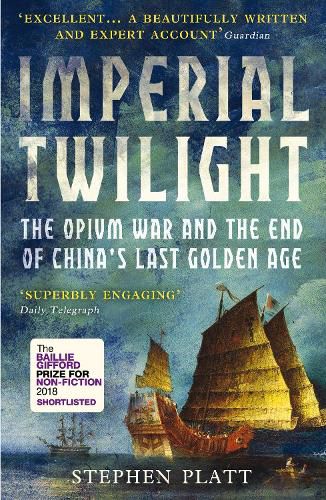Readings Newsletter
Become a Readings Member to make your shopping experience even easier.
Sign in or sign up for free!
You’re not far away from qualifying for FREE standard shipping within Australia
You’ve qualified for FREE standard shipping within Australia
The cart is loading…






Financial Times’ best history books of the year Sunday Times’ best history books of the year
In 1839 Britain embarked on the first of its wars with China, sealing the fate of the most prosperous and powerful empire in Asia, if not the world. Motivated by drug profiteering and free-trade interests, the Opium War helped shaped the China we know today, sparking the eventual fall of the Qing dynasty and the rise of nationalism and communism in the twentieth century. Imperial Twilight is a riveting and revealing account of the end of China’s Golden Age and the origins of one of the most unjust wars in history.
‘Entertaining and well-paced… Platt’s compelling book is a sobering read that should focus the minds of those who like to talk of the achievements of the Victorian age without thinking about how those were achieved, or how they were funded.’ - Peter Frankopan, Spectator
$9.00 standard shipping within Australia
FREE standard shipping within Australia for orders over $100.00
Express & International shipping calculated at checkout
Financial Times’ best history books of the year Sunday Times’ best history books of the year
In 1839 Britain embarked on the first of its wars with China, sealing the fate of the most prosperous and powerful empire in Asia, if not the world. Motivated by drug profiteering and free-trade interests, the Opium War helped shaped the China we know today, sparking the eventual fall of the Qing dynasty and the rise of nationalism and communism in the twentieth century. Imperial Twilight is a riveting and revealing account of the end of China’s Golden Age and the origins of one of the most unjust wars in history.
‘Entertaining and well-paced… Platt’s compelling book is a sobering read that should focus the minds of those who like to talk of the achievements of the Victorian age without thinking about how those were achieved, or how they were funded.’ - Peter Frankopan, Spectator